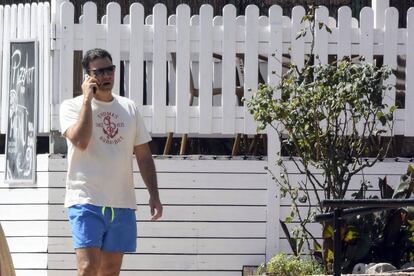Socialist Party assumes Rajoy will fail in bid to form government
Federal committee will meet in October after two key regional elections to review its position

Spain’s Socialist Party (PSOE) says it will not review its decision to reject supporting interim Prime Minister Mariano Rajoy of the Popular Party (PP) in his bid to form a government at the investiture debate beginning on August 30, opting instead to wait until October, after two key regional elections in Galicia and the Basque Country, when its federal committee will meet.
The Socialist Party is already assuming that Rajoy will fail to garner enough support in Congress at a first vote on August 31.
In order to be reinstated as the country’s prime minister, following a second inconclusive election in June, Mariano Rajoy will need to secure an absolute majority in a vote to be held on August 31. If he fails, a second vote, at which a simple majority will suffice, will take place on September 2.
The Socialists won 85 seats in the June 26 elections, while Podemos garnered 71, leaving them 20 seats short of a majority
At present, Rajoy lacks the support in Congress to be voted in as prime minister. He would have 170 votes with the support of Ciudadanos and the Canary Islands Coalition, but would still need six more for an absolute majority in the first round, or a total of 11 abstentions in the second, and as such will have to look for backing from the country’s regional parties.
The PP acceded to Ciudadanos’ demands last week and signed an anti-corruption pact. The deal was part of a memorandum of six measures Ciudadanos presented to the PP last week. But Ciudadanos has made clear that the deal is simply a pre-condition for supporting Rajoy in the congressional vote later this month.
The Basque Country and Galicia will both hold elections on September 25, the outcomes of which could affect Rajoy’s chance of garnering support in Congress to try to form a government should he fail later this month and the country has to return to the polls for a third time in 12 months – this time on December 25 – which would likely produce a similar result to June’s.
The Socialists have rejected supporting Rajoy, rejected the idea of third elections on Christmas Day, and so far have rejected advances from Podemos
In both regions the balance of power is delicate: Galicia is currently run by the PP, where it has a one-seat majority in the regional parliament; in the Basque Country, the Basque Nationalist Party (PNV) rules a minority administration with the support of left-leaning nationalist group EH Bildu.
The Socialists, led by Pedro Sánchez, have rejected supporting Rajoy, rejected the idea of third elections on Christmas Day, and so far have rejected advances from the leftist Podemos party to form a coalition administration and seek the support of Ciudadanos and the nationalist parties. Sánchez has few options: the federal committee met in July and reiterated its refusal to support Rajoy.
The Socialists won 85 seats in the June 26 elections, while Podemos garnered 71, leaving them 20 seats short of a majority. It is unclear whether Ciudadanos, which put together a joint electoral program with the Socialists in February, would support such a coalition.
So far, the Socialists have ruled out trying to form a coalition, in large part because of Podemos’ insistence that Catalonia be allowed to hold an independence referendum. Both parties appear to have lost the political initiative.
English version by Nick Lyne.
Tu suscripción se está usando en otro dispositivo
¿Quieres añadir otro usuario a tu suscripción?
Si continúas leyendo en este dispositivo, no se podrá leer en el otro.
FlechaTu suscripción se está usando en otro dispositivo y solo puedes acceder a EL PAÍS desde un dispositivo a la vez.
Si quieres compartir tu cuenta, cambia tu suscripción a la modalidad Premium, así podrás añadir otro usuario. Cada uno accederá con su propia cuenta de email, lo que os permitirá personalizar vuestra experiencia en EL PAÍS.
¿Tienes una suscripción de empresa? Accede aquí para contratar más cuentas.
En el caso de no saber quién está usando tu cuenta, te recomendamos cambiar tu contraseña aquí.
Si decides continuar compartiendo tu cuenta, este mensaje se mostrará en tu dispositivo y en el de la otra persona que está usando tu cuenta de forma indefinida, afectando a tu experiencia de lectura. Puedes consultar aquí los términos y condiciones de la suscripción digital.








































